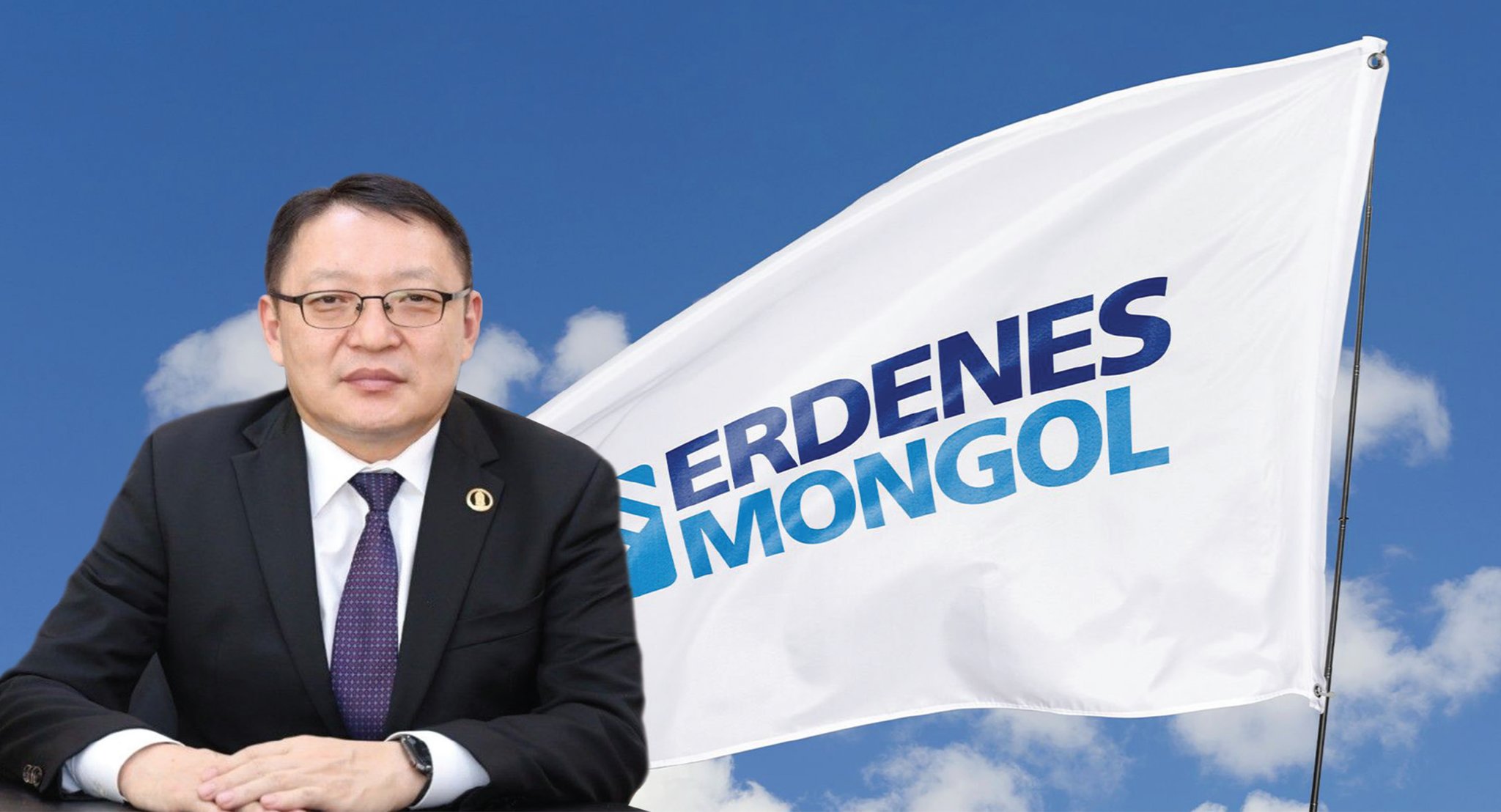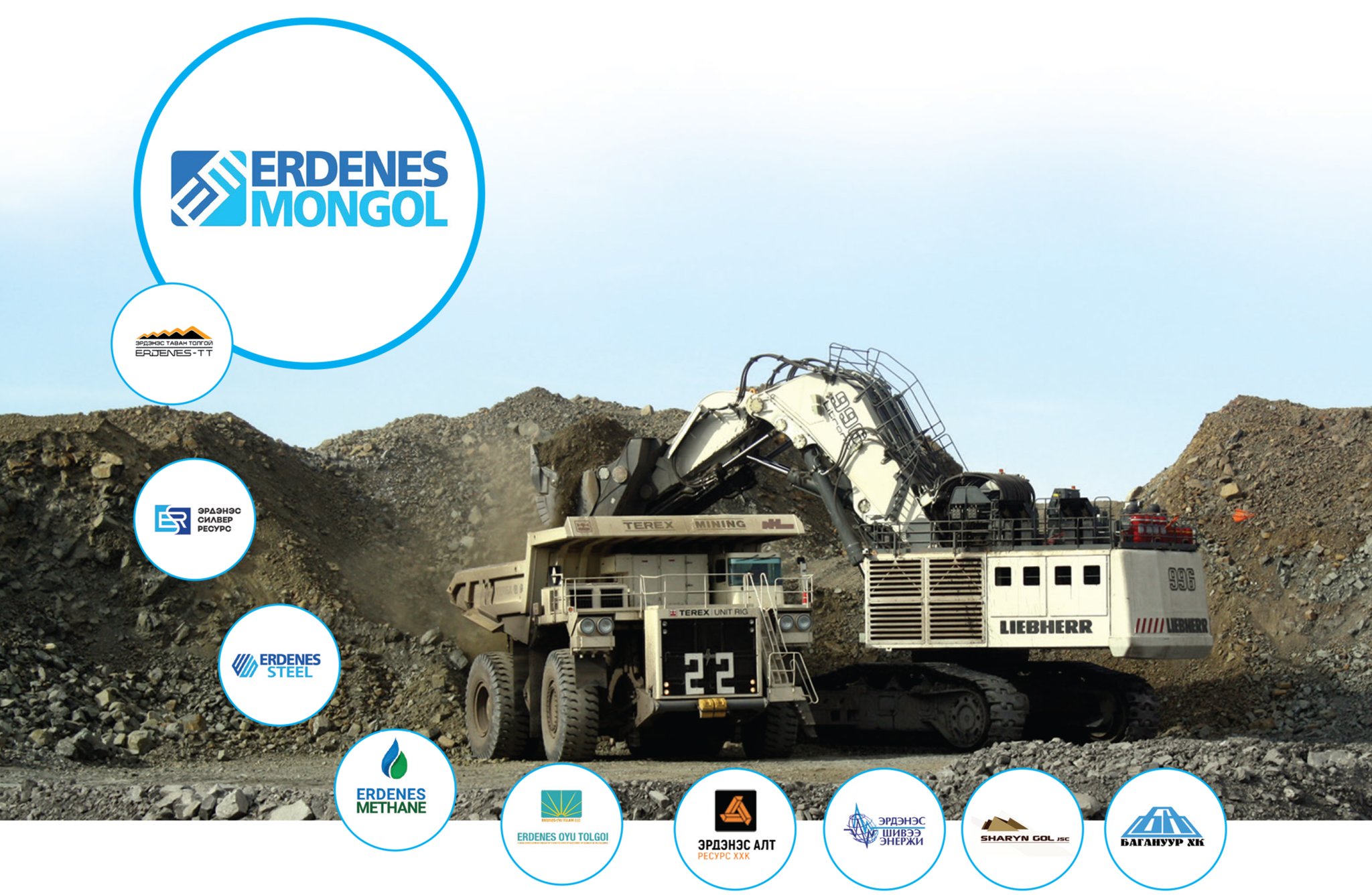
The Mongolian Mining Journal /Apr.2023/
D. Oyunchimeg
Erdenes Mongolia was founded in 2007 and incorporated 39 state and partially state-owned companies.
A company that manages natural resources on behalf of the government has spent considerable time earning a bad reputation caused by poor management, lack of business principles, large debt, a weak organizational structure, and projects that have not yielded any results.
The company has been in operation for 15 years, but during that time the management has changed nine times, and the company’s charter has been revised twice. However, it was obvious to all that the company with its many subsidiaries had made no progress and was like a dead soul caught in a web of debts. But the current new management, at a meeting of the Club of Economic Journalists said: “The government will not interfere in business activities, because the rules of the company and the game are now clear. A system of immunity and protection is being established, which will work on the basis of business principles, not political decisions.”
ERDENES MONGOL LLC HAS THREE BOARDS OF DIRECTORS
Board members of local and state-owned companies consist of experts from their respective ministries and departments, while independent members are appointed through a selection process. However, there will always be criticism that the selection process is unfair. Moreover, it is obvious to many that the company’s Board of Directors works only nominally. So this time, Erdenes Mongol LLC has announced that it will abolish this model. Thus, director S. Narantzogt emphasized that according to the new rules, there will be an open process for selecting board members. “According to the rules, 51% of the company’s board members must be government representatives and 49% must be independent members. Thus, decisions will be made based on business principles rather than politics,” he said.
When this change was proposed, it was suggested that the government representation be 49%, but the government felt that the principle of “the owner controls his/her property” would be lost.
On the other hand, in addition to Erdenes Mongol, the coal and copper groups will have a board of directors, while the rest will operate without a Board. To be more precise, the company will basically have only three boards of directors. S. Narantsogt said that the above decisions are being implemented in accordance with the Prime Minister’s directive to reduce the total number of 270 board members to 27. During the meeting, it was presented that by removing 243 members from the board, the annual expenses of 2 billion MNT will be reduced to 500 million MNT.
In other words, forming a qualified Board of Directors is part of their goal. Therefore, the company’s updated charter states that the current independent board members should be highly knowledgeable in business, experienced in strategic planning, able to make independent decisions, and responsible for their decisions. It is believed that this will have a significant impact on the growth and development of the company. The company’s management says that Erdenes Mongol, which has undergone reforms and restructuring, and recruited employees since last year, will be independent of politics and have a professional team.
SIX SUBSIDIARIES AND ONE PROJECT UNIT WILL BE LIQUIDATED
“Erdenes Mongolia, which represents the state with respect to the use of Mongolia’s strategically important mineral deposits, is liquidating its inefficient subsidiaries and affiliates. These also include some unnecessary boards of directors. Director S. Narantsogt told economic journalists that Erdenes Mongol LLC has six inefficient companies and one project unit that have ceased operations.

The new management of Erdenes Mongol does not hide the fact that there have been many flaws, such as inefficient projects, unclear financial sources, project time extensions, and irrational expenditures. There are a total of 59 projects, and the elimination of inefficient and duplicative projects continues. At this point, a decision has been made to liquidate the Shive Energy project, and Erdenes Silver Resource is likely to be next, the source said. Shive Energy’s lignite-based power generation and export project was said to require $13 billion.
The reason we had to decide to liquidate was the shutdown of the Shivee-Ovoo Energy project, which originally involved the construction of a thermal power plant with a capacity of 5,280 MW. The main objective of the project could no longer be achieved. Nevertheless, the change in operations was stopped, and the project unit is being liquidated in accordance with relevant laws and regulations.
In addition, some management functions of the Erdenes Gas project unit were duplicated, so the organizational structure of the project unit was updated, duplication eliminated, and operational coordination improved.
GEOLOGICAL EXPLORATION WILL BE INTENSIFIED
In addition, due to past exploration delays, resources have decreased and become scarce. There was a problem with mining the high-grade part of the Erdenes Tavantolgoi deposit. Industry experts know that the more you selectively mine the best parts of the deposit, the less time this mine can be used, and it will not be possible to fully develop its resources. This will lead to a decrease in the efficiency and profitability of the deposit.
Erdenes Tavantolgoi is a vivid example of selective mining. There are about 800 million tons of coal reserves in the 3rd and 4th seams of Western Tsankhi. 100 million of them have already been extracted and sold. The current contract is for 100 million. “There are 600 million tons left,” he said. Selective mining is being done not only at Erdenes Tavantolgoi, but also at the Darkhan Metallurgical Plant and Erdenes Silver.
The company owns 84 special licenses, 63 of which are for exploitation, and the rest for exploration. In the future, the company plans to invest more in exploration, discover new fields and increase its reserves.
NUMBER OF PREFERRED STOCKS WILL BE INCREASED
Each citizen of Mongolia owns 1,072 shares of Erdenes Tavantolgoi. But some citizens have sold half, and some have sold all the shares to the government and spent all the money. Erdenes Mongol owns one preferred share of the company. It has no voting rights, and shares cannot be sold, transferred, exchanged, donated, pledged, or inherited. But if dividends are distributed, they are entitled to receive them.
On April 6 last year, at a regular cabinet meeting, the charter of Erdenes Mongol LLC was revised. At that time, it was reported that the number of preferred shares of the company would be increased by two million to five million, and every citizen of Mongolia would have the right to own them. It was reported that there was an opportunity to distribute the natural wealth equally among the citizens. During his speech, S. Narantsogt, General Director of Erdenes Mongol company, said that there is a possibility to pay dividends on preferred shares to citizens starting next year.
FROM A RENTAL HOUSE TO ELITE CENTER
Erdenes Mongol pays 1.2 billion a year for office rent. This is one of the reasons for the company’s losses. This means that the money the company has already spent on rent was enough to build its own “house”. S. Narantsogt, the company’s executive director, did not deny this. However, he said: “We are working on repairing infrastructure to get ready to move into the government-allocated Elite Center.” The company has budgeted one billion MNT for repair work.
In any case, Erdenes Mongol has begun to make changes to the company’s organizational structure, management, rules, and finances. But time will tell if it will achieve results and overcome political pressure. I hope that the day is not far off when the people will enjoy the benefits of their natural resources.